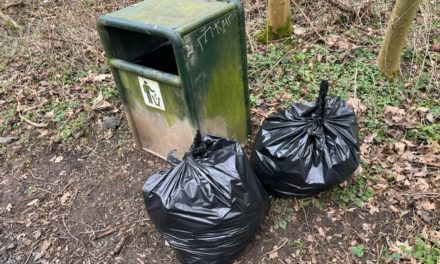Dear Sir,
I wish to respond to last week’s article which promotes Fornax’s proposal for an incineration plant at Merchant Park, Newton Aycliffe. The article was unsigned but, appearing as it does next to Mr Howell’s Parliament Talk column, it gives every appearance of at least being endorsed by Mr Howell.
I would like to thank Mr Howell, Councillor Gerald Lee and representatives from Fornax for taking the time to respond to people’s questions about the proposal. However, I must take issue with the way the situation has been presented in the article, and readers might find a bit of background helpful.
The planning application – received 27/4/21 – was not given much publicity at all, beyond the businesses in the immediate vicinity of the proposed site. Only a handful of householders were notified directly. It was a resident’s social media post which drew the attention of others to it in any significant way. Immediately following this, a Facebook Group was set up to inform people about the application. Leaflets were commissioned, paid for privately, and distributed by volunteers in areas of Aycliffe Village, Newton Aycliffe, Heighington and School Aycliffe. The deadline for objections was mid-June, so there was really no time to lose. Fornax had complied with statutory consultation procedures but felt no obligation to ensure people in nearby residential areas were made aware. A notice was placed in the Northern Echo, but one in the Newton News would have reached many more local people. This is not an application to remove a tree or extend a residential property. This is an application for an incinerator plant which will treat clinical and hazardous waste, produce toxic emissions, have an effect on many people living in surrounding villages and farms, and generate considerable heavy traffic (an average of 30 journeys per day, using 14 tonne trucks and articulated trailers) on a B road with a level crossing. Despite Covid, much more could and should have been done to inform the public of the application.
Those who were consulted were, in the main, businesses. In Fornax’s application document titled ‘Consultation Feedback’, they say, “Meetings were held with both the MP, and separately with members of DCC’s regeneration team. …. No further comments or feedback was (sic) received from those contacted beyond these meetings, reflecting the anticipated low response to the proposals”.
Local residents, however, have different priorities to businesses. Residents are concerned about health, well-being, family safety, etc. rather than opportunities for profit. As evidenced by the numbers of objections submitted by residents once they did know about it, Fornax would have drawn a different conclusion about their ‘anticipated low response’, had they consulted local people at the outset.
Mark Roberts for Fornax states in the Newton News article, “Since starting this project, we are committed to being a good neighbour to the community”. Failing to consult with the public at an early stage for such a project does not strike me as good neighbourliness.
In relation to this lack of consultation, Mr Howell says “Residents were frustrated by the level and timing of information they had received”. Actually, residents were angry. They felt this was a ‘done deal’, negotiated behind closed doors, with the public being taken for granted.
With regard to the meetings held online on 14th and 15th June with members of the public, the article states there was a ‘wide-ranging and in-depth discussion’. I would argue there was no ‘discussion’. Mr Howell asked that questions be submitted, via his office, to Fornax well in advance. Apart from a couple of questions, at the meeting of 14th June, questions were read out by Mr Howell and answered by Fornax. At the meeting of the 15th, when residents asked their own questions and were able to challenge answers given, Fornax appeared less sure of some of the answers.
Studies and reports by organisations such as UKWIN (UK Without Incinerators) and Zero Waste Europe, as well as articles in medical journals, show that incinerators – even the modern, new tech ones – can lead to health problems for those who live nearby, and authorities should proceed with caution when considering new applications. Yet the article states ‘There will be no harmful emissions from the site’. This is just not true. Fornax clearly stated in the meetings that there will be toxic emissions.
We all accept that our waste has to go somewhere, and that landfill is not always the appropriate solution. However, incineration should be a last resort.
Emissions produced by incinerators do not count towards the Emissions Trading Scheme (which is an important measure in reducing greenhouse gases, by forcing those who produce emissions to pay for it). There is, thus, an incentive to use incineration as a means of waste disposal, and indeed its use is increasing. Studies show, however, that greater use of incineration leads to less waste being recycled. It is also known that generating energy from waste is very inefficient.
People are being encouraged to (a) use less and (b) recycle more, in order to minimise residual waste. Therefore there will be less, not more, need for new incinerators. Fornax are planning to build four more incineration plants in the UK and, once built, they will be around for decades.
If anyone wishes to know more about how to object to the application, please contact me at Eileen.brewis@btinternet.com. The facebook group is Heighington Lane Incineration Plant Information Group.
Eileen Brewis








